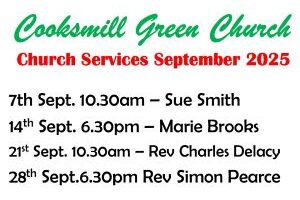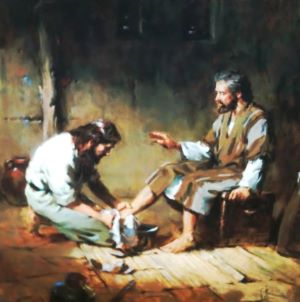Though for the Month – September 2024
A Right to Disconnect
I have been following with interest, the recent media articles relating to a legal right to be able to disconnect from the workplace. This week it became enshrined in Australian employment law, whilst countries such as France, Spain and Portugal are already well ahead in their desire to protect both the physical and mental health of their citizens. Alas this is not the case in the UK, though the new Labour government have said they will now consider its application sometime soon. It is, when you stop to think about it, something quite worrying that we actually need to have legislation to protect the rights of employees to simply leave work, to go home and do what it is that helps them to rest and recover, without further employer intrusion. When did things get so bad, that we are no longer able to simply become ‘disconnected’ as and when we choose, especially when the days’ work is done?
Whilst this legislation is currently aimed at employment law, how soon might we all need it in our everyday lives, employed or not? Just stop and think about how difficult it may be, for you to disconnect with the demands placed on you by life, by those around you and even by yourself? How easy do you find it to say no, or even better, to not be available to say it at all? Just consider for a moment, as to how you disconnect from societal pressure, when you need to.
If you do find it challenging, then I suppose some blame has to be placed at the door of technological advancement, where now, we are fully (and expected to be) accessible through the use of mobile phones, laptops, smartwatches and so on, and to always be so, at any time of day or night. I wonder how many of you reading this, own a mobile phone, I would think its most, if not all of you, and is it always somewhere close, so that you can always be ‘accessible’? Have you ever had that conversation that starts “where have you been? I’ve been calling you constantly!” said with guilt provoking precision, for simply being disconnected, even for the briefest of moments, after all, what modern person would intentionally be disconnected and inaccessible nowadays?
Whilst the pervasive nature of technology can be seen as both a blessing and curse for our modern way of living, we should probably also recognise the significant cultural changes that have taken place in recent decades. There are no true days of rest anymore, dominant secular influence means that even Sundays have become no more than simply the seventh day of the week, with everything being available, open and accessible, just like the preceding six. Society no longer seems to recognise an entitlement to disconnect, there’s no consideration for an individual’s need to be left alone in peace, to be given restorative space and time to recover from life’s demands. People are often left frustrated or personally slighted if their phone call is not answered or returned immediately, if the email or text is not responded to, perplexed by the notion of how rude and selfish it is for someone to deliberately make themselves unavailable. When did intentional solitude become so socially objectionable?
In the year 321AD, a Sunday was a working day much like it has become now, when a new Christian convert, the Roman Emperor Constantine, decreed that Sunday would be a day of rest for everyone, to be free from any form of labour, be it employed or not, and so began the Christian Church’s official recognition of Sunday as being the seventh day of the week. They also declared that this would now mean that Sunday and not Saturday should be regarded as the Sabbath Day for all Christians, a day that was to be revered, such was its importance for restorative rest, both physically and spiritually, and after all, even God rested on the seventh day following a very hard weeks work of creation.
The Bible makes numerous references to the importance of Sabbath, which is derived from the Hebrew word ‘shavat’ which literally means ‘to rest’ and yet it feels to me that many of us have now chosen to miss out on this beneficial Scriptural guidance, one that provides us with an opportunity to officially declare Sunday as a day to just stop and disconnect from the demands of life, to find physical and spiritual sustenance in rest and in being with God, and to do so without distraction or interruption.
Of course, there isn’t anything actually stopping us from disconnecting, other than personal choice it would seem, and perhaps some of you are actually very good at disconnecting, but for those who are not, what is it exactly that has made us veer so very far, from two millennia of Christian custom, that is intentionally designed for our own personal benefit? How do we begin to make Sabbath as relevant and important as it once was?
In all four Gospels we hear of Jesus taking time out to be by himself, taking himself up a mountain to be alone and to pray, even He needed some quiet rest to recover from the demands of His ministry, and it’s important to note, that whilst He recognised the need in Himself, so did His followers, who gave Him the space to do just that, to disconnect from them and their need of Him. Perhaps it is a reminder for us all that if we choose not to disconnect in life, that we must remember to respect the needs of those who do, that wanting to be alone is normal and healthy, to give them the space and time to enjoy it or even give it a go yourself. Maybe try turning that phone off for a whole day? Now there’s a thought.
Amen.
Danny
A Prayer for Rest
Heavenly Father life can seem so demanding at times
But in you I find peaceful rest
I bring all my worries and concerns before you
knowing that you will bear my load and ease my stress
Your love sustains me and nurtures my love for others
Be with me when life’s demands seem endless
Give me strength to endure and wisdom to know when to stop and disconnect
Fill my heart and mind with peaceful calm
May your Holy Spirit fill me with renewed energy to always help myself and others
in this increasingly demanding world that we have created,
to always find our way back to you,
to peace, perfect peace. Amen











